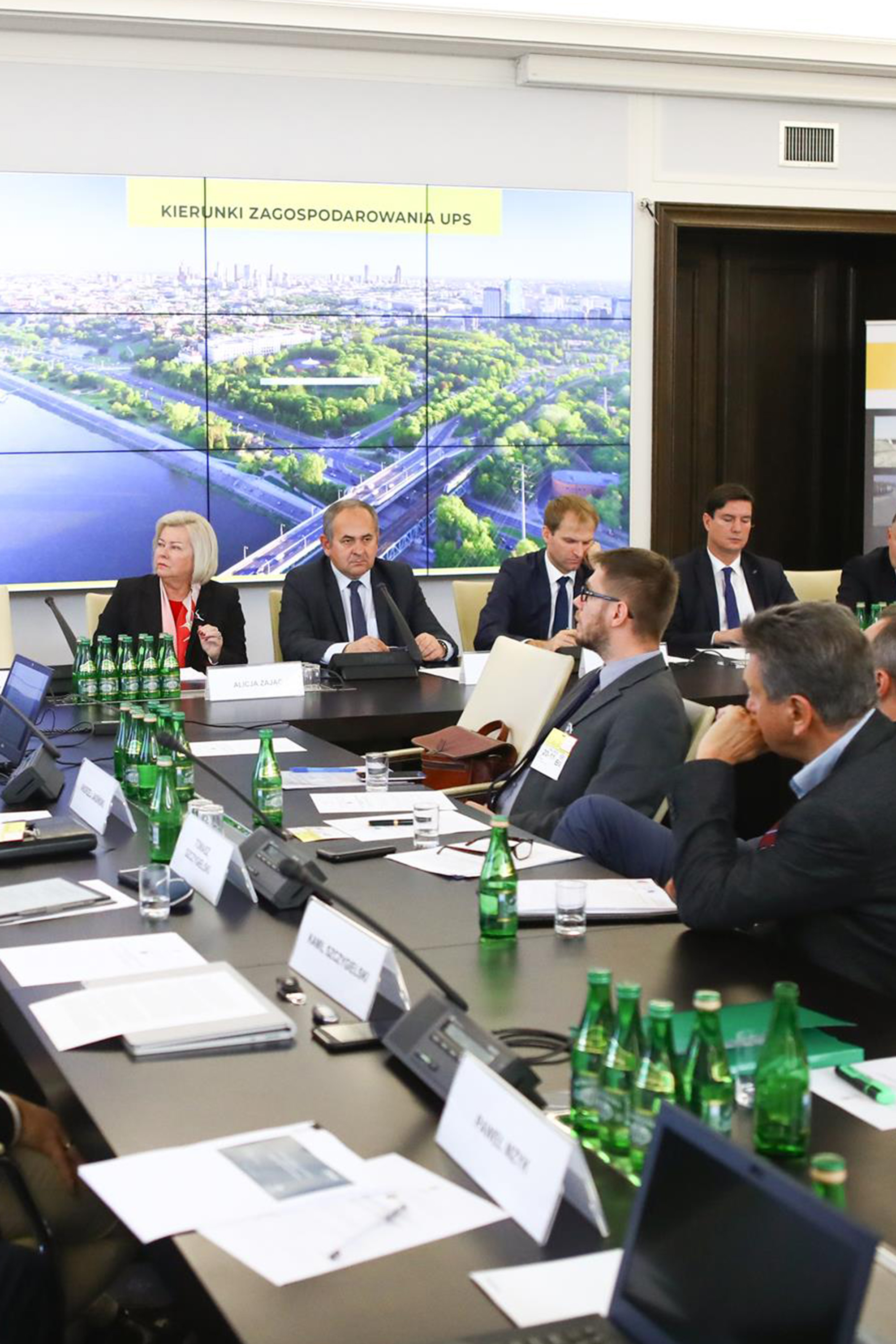
Pro-environmental solutions for combustion by-products were discussed at a Senate meeting of the Environment Committee
23.11.2018
Solutions for waste-free energy are already used in Poland; however, the challenge is how to make them more popular. These are the conclusions drawn at a meeting of the Environment Committee of the Senate of the Republic of Poland organised in cooperation with the Association of the Polish Combustion Products Union. Participants raised issues of climate protection through effective combustion by-product management, and the symbiosis between energy, mining and civil engineering.
The seminar’s attendees included the Chairman of the Environment Committee – Zdzisław Pupa, who also chaired the committee meeting – and the presidents of major Polish energy companies involved in waste-free coal and mining energy. These included the President of the Management Board of PGE Ekoserwis – Lech Sekyra, President of the Management Board of PGE GiEK – Radosław Rasała, Vice President of the Management Board of ENEA Wytwarzanie – Jarosław Ołowski, and Kamil Szczygielski – President of the Management Board of the EKOTECH Group, which specialises in the production of specialised building materials based on anthropogenic minerals.
Government attendees included the Adviser to the President of the Republic of Poland – Paweł Sałek, Undersecretary of State at the Ministry of the Environment – Sławomir Mazurek, and chairman of the Commission for Energy and Treasury – Maciej Małecki.
In the first part of the meeting, dr Tomasz Szczygielski took the floor – he’s an expert in the processing and management of combustion by-products in coal energy; his speech covered the benefits of the management of combustion by-products in the energy sector. Both the environmental and economic aspects of this solution were emphasised.
The environmentally friendly potential of waste-free energy was also presented to the participants of the seminar by Kamil Szczygielski, who described the experience of the EKOTECH Group, which for years has been using anthropogenic minerals, primarily for infrastructure purposes. The Group’s main product is TEFRA® binders with a low carbon footprint, which were used to build over 800 km of expressways and highways in Poland.
‘The foundation of our activity is the symbiosis between energy and infrastructure construction. For nearly 20 years, we’ve been implementing environmentally friendly solutions by adopting the idea of a circular economy. An example of this is lignite ash, which is classified as waste. We think of it as an anthropogenic mineral that we use for the production of specialised building materials’, Szczygielski said.
He went on to explain the differences resulting from the current treatment of waste generated in the combustion process by major energy companies, and showed a new direction that will enable the use of ashes, hundreds of tonnes of which are accumulated in landfills across the country.
‘The vast majority of lignite ash produced in Poland is not processed, and inevitably ends up in landfill. This is an example of a linear economy. The approach of the EKOTECH Group is based on the concept of a circular economy, in which, using TEFRA® technology, we eliminate ash accumulation by technical processing and economic use in geoengineering’, Szczygielski emphasised.
All of the speakers had a strong focus on the environmental and economic aspect of a circular economy. They also directly addressed the current government representatives with a request to establish and implement new regulations regarding mineral waste management. Tomasz Wilczak – Vice President of the Management Board of PGNiG Termika – also shared his experience in the field of ash management. He based his speech on an example of the use of ashes from two key power plants producing energy for Warsaw: Siekierki and Żerań. Ashes from Żerań were used to build the North Bridge. Approximately 500,000 tonnes of ashes were incorporated into on- and off-ramps, and soil from drilling for the metro tunnel took their place. Ashes from Siekierki currently go to the construction of the Southern Bypass of Warsaw – approximately 200,000 tonnes will be used.
An example of combining the challenges of the energy sector and environmental challenges can be seen in JI Project Tefra, which is implemented by the EKOTECH Group as part of the UN Climate Convention (UNFCCC) and the fulfilment of the provisions of the Kyoto Protocol. It’s not without reason that this project was repeatedly referred to during the debate – by the President of the Group, by Paweł Mzyk – the Head of the National Centre for Emissions Management, as well as by Paweł Sałek – Advisor to the President of the Republic of Poland. During the implementation of the Project, i.e. over five years (2008-2012), 500,000 tonnes of CO2 emissions were avoided. Pursuant to the provisions of the Kyoto Protocol, the Project also obtained emission reduction units (ERUs), which were included as fulfilment of Poland’s obligations resulting from the provisions established in Kyoto. In the second part of the meeting, a discussion moderated by dr Tomasz Szczygielski took place, during which the problem of landfilling of the waste from combustion process (mainly ash) was raised, and solutions were proposed in which this waste becomes an ecological product with a wide range of applications in various industry sectors, such as construction (building materials) and interior design.
In summary, the Chairman of the committee – Zdzisław Pupa – admitted that symbiosis and synergy of energy, mining and civil engineering are necessary to implement the innovative solutions proposed during the meeting. Specific actions by authorities are needed in this regard, which was pointed out on several occasions by almost all of the participants of the seminar.
The last speaker was the Advisor to the President of the Republic of Poland – Paweł Sałek; he admitted that changes are needed in the management of mineral waste, and highlighted that Poland was, is and will be open to pro-environmental activities.
